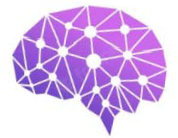
qEEG screening
Service code s9028
Short description
Overall distress occurs when the brain (and mind) fails to adapt successfully to changes in the environment that confront the individual with new challenges, which pose demands, constraints or opportunities. In most cases distress occurs when the person chronically resists (mentally or emotionally) new challenges.
Maladapting to changing environmental conditions (especially in extreme situations) often is associated with a considerable increase in the prevalence of distress in the general population. Such distress may be felt or not subjectively depending on brain resources and certain personality features. Therefore, an objective assessment of the overall distress and its components is needed. Here, qEEG screening can be helpful.
Results
By performing this qEEG screening you will get the information on:
- whether you have a qEEG pattern typical for distress and
- what are the components that drive it.
Notes:
- The results of qEEG analysis are put in context of published scientific studies, the individual’s health history, complaints, symptoms and psychometric and other evaluations (if available).
- Present psychotropic medication use may affect the results.
To place a service order, use the following email:
References
- Eldeeb S, Susam BT, Akcakaya M, Conner CM, White SW, Mazefsky CA. Trial by trial EEG based BCI for distress versus non distress classification in individuals with ASD. Scientific Reports 2021; 11: 6000.
- Hou X, Liu Y, Sourina O, Eileen TYR, Wang L, Mueller-Wittig W. EEG based Stress Monitoring. In: IEEE International Conference on in Systems, Man and Cybernetics (SMC2015), Hong Kong, 2015.
- Hosseini SA, Khalilzadeh MA. Emotional stress recognition system using EEG and psychophysiological signals: Using new labelling process of EEG signals in emotional stress state. In: International Conference on Biomedical Engineering and Computer Science (ICBECS), Piscataway, New Jersey, 2010, pp. 1–6.
- Peng H, Hu B, Zheng F, Fan D, Zhao W, Chen X, et al. A method of identifying chronic stress by EEG. Pers. Ubiquit Comput 2013; 17: 1341–1347.